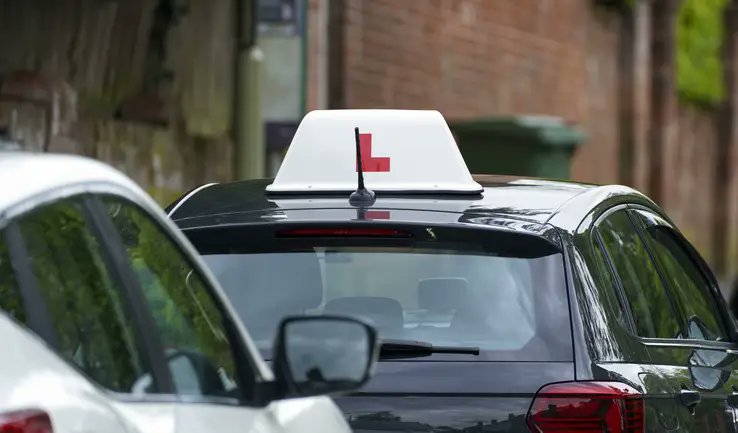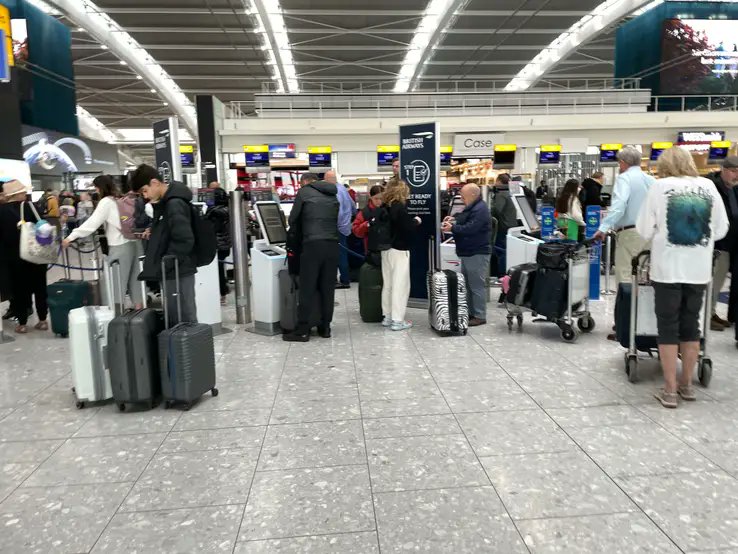
RADAR Round-Up: A look at the stories delivered by the RADAR-AI editorial team in the month of April
By Adam Care 02/05/2024We look back at the amazing work PA’s AI-powered news service RADAR has delivered over the past month.
Every month the team at RADAR AI work through hundreds of pages of data from a wide range of sources, to produce original, public interest journalism.
April was no exception, with a variety of stories published based on official statistics and original reporting.
Here are just some of their recent highlights.
- Sewage Spills
The sewage crisis in Britain’s rivers has been widely reported, but with the latest data from the Environment Agency, RADAR was able to pinpoint exactly where the situation was at its worst.
The agency’s own records track how many hours of sewage overspills took place in each local authority in England – with waste leaking into rivers and seas for over three million hours, across 464,000 separate spills.
This allowed the team to give precise local figures for each part of the country, and show just how much more dire the situation has become.
2. TV Licence Evasion
Concerns have been raised over the disparity in prosecutions for TV licence evasion, with women far more likely to face legal action than men.
After analysing the figures, which show over 32,000 women were prosecuted for not having a licence in 2022, the Magistrates’ Association told us it was concerned about the gap, which is not reflected in who holds licences – “suggesting the disparity results from either capacity or willingness to pay, or the enforcement practices being followed”.
3. Driving Tests
Annual figures from the DVSA provide an interesting overview of the state of driving
tests across the country, with the national pass rate currently standing at 48.2 per cent.
However, further analysis of the figures allowed us to look closer, and provide a gender breakdown, comparing the pass rate across the country for men and women.
Using this, we were also able to demonstrate how the gender gap has changed over time, at every test centre in Britain.
https://www.leaderlive.co.uk/news/24242111.women-men-passed-driving-tests-wrexham-2023/

4. Autism Waits
There were 136,000 people referred to NHS autism services last year, with December seeing 172,000 open referrals, the highest ever figure and a fivefold increase since 2019.
After we broke down the national totals by integrated care boards, the Nuffield Trust warned the NHS is struggling to meet the “unprecedented” demand.
Chief executive Thea Stein said “We are only now beginning to recognise just how many people are neurodiverse. The challenge is that we have an obsolete health service model in place to deal with this avalanche of need.”
5. Renewable Energy Potential
How much extra energy would be generated if all land available for wind and solar power was put to use?
That was the question posed this month by the Friends of the Earth charity, as they called on local authorities to find suitable sites for renewable power generation.
Using their analysis, along with research from Exeter University’s Environmental Intelligence Centre, we were able to show how many hectares of land in each council area could be used for wind turbines or solar powers.
Climate campaigner Tony Bosworth said doing so would be a win-win “for creating long-term jobs, boosting our ailing economy and protecting our planet for future generations.”
6. Repeat Knife Offenders
In 2015 the Government introduced a ‘two-strike’ rule for those convicted of knife offences a second time.
But despite promising immediate jail sentences, nine years on it seems reality has failed to live up to expectations.
Last year nearly four in 10 people caught with a knife or offensive weapon were not sent to jail.
Knife crime charity the Ben Kinsella Trust said the rule “fails to deliver a strong deterrent effect and leaves victims feeling like they haven’t received the justice they deserve.”
https://www.oxfordmail.co.uk/news/24261530.nearly-40-repeat-thames-valley-knife-carriers-avoid-jail/
7. Airport Delays
Flights from the UK’s 22 commercial airports were delayed for an average of 20 minutes 43 seconds last year, with Gatwick faring worse overall.
For our local news subscribers, we were able to supply unique copy for each one, using Civil Aviation Authority data to show all the figures for their nearest airport.
Naomi Leach, deputy editor of consumer magazine Which? Travel, said: “It’s clear from these latest figures that millions of passengers continued to experience unacceptably long hold-ups last year.
“This cannot be allowed to become the new normal.”

8. English Identity
St George’s Day always prompts a great deal of discussion around levels of ‘Englishness’, something we were keen to look at this month.
Using the ONS’ annual population survey, which invites people to declare how they identify from a range of possible options, we tracked how ‘English’ people said they feel in different parts of the country.
Nationally, English identity has fallen over the last 20 years, from 59% of people identifying as English in 2004, to 43% last year.
https://www.theboltonnews.co.uk/news/24270133.st-george-not-racist-half-bolton-say-english/

9. Green Spaces
Another diary date we were keen to hit this month was Earth Day – an annual event designed to raise awareness of environmentalism and promote sustainability.
Fortunately, we knew we had access to data from the Ramblers, who had calculated how many miles of green footpaths there are within each local authority.
Using this, along with figures on tree cover from the Friends of the Earth, and ONS data on time spent in nature, we were able to publish a story examining all these issues in one timely piece.
10. Deaths of Despair
‘Deaths of despair’ are defined as those linked to alcohol, drugs and suicide, and paint a stark picture of the inequalities found across England.
A new study by academics at the University of Manchester analysed coroners’ records to count these deaths over a three-year period, which highlights the dramatic nature of the north-south divide.
16 of the 20 areas with the highest mortality rate are in the north of England, while none of the 20 with the lowest are.
For RADAR though, the figures for each authority area in the country gave us an opportunity for a more localised analysis, showing the death rate for each part of England, and how it compares to the national average.
Click here to learn more about RADAR.